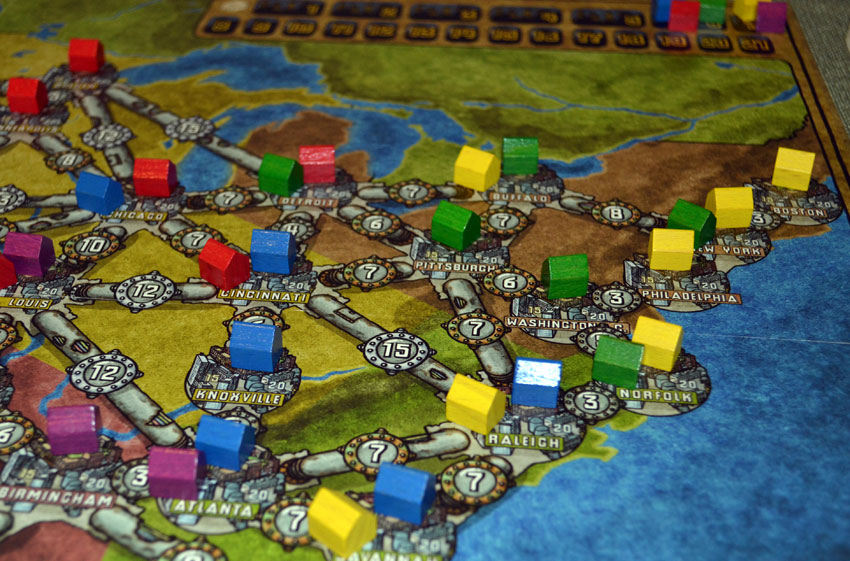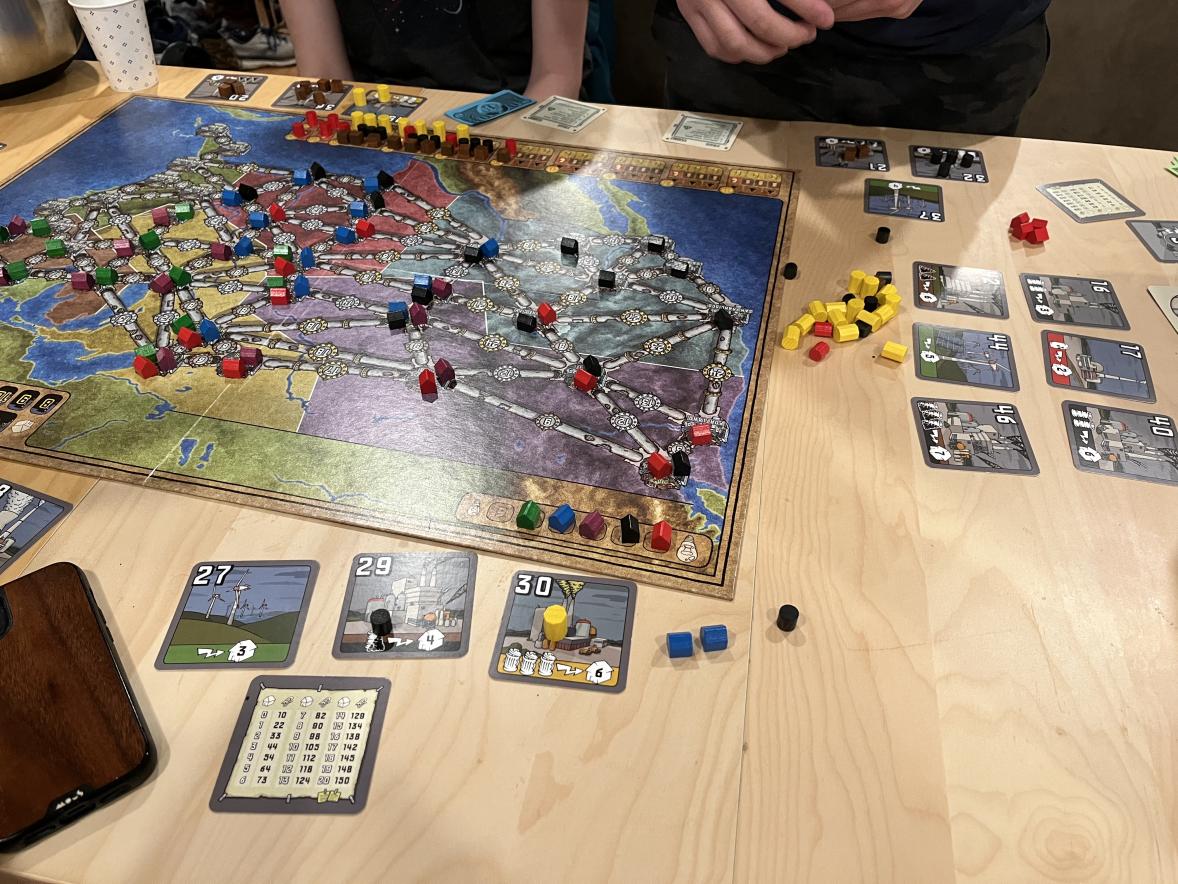Power Grid is a board game for 2-6 players centered around resource management and competition between players. The mechanics include bidding, investing, building, and budgeting, as the players must construct bases in cities, bid for power plants, and invest in or store materials (such as oil) to create energy.
The mechanics create a competitive social atmosphere, as the difficulty in the game comes largely from tension between the other players. Other players drive up the costs of power plants through bidding and the cost of materials by buying up the cheap ones and leaving only expensive options behind. Additionally, the restrictions on where players can build bases (only a limited number of players can occupy a city at a time, and players can only expand to adjacent cities) paired with blocking off regions at the beginning of the game based on how many people are playing means it is likely and encouraged to trap other players in corners of the map, or interfere with their plans by buying up certain cities. The multiple avenues of competition mean that players are never helpless if another player traps them somehow- players who are unable to expand can save up a lot of money that they’re not spending on new cities to drive up the cost of materials or power plants, for example. Additionally, the turn order is re-determined every turn, giving advantages to players in last place. This rule helps prevent the game from becoming too one-sided.

Aesthetically, the game has a semi-realistic design. The board is a real map of the US, with real US cities to build in. Players additionally use paper money modeled after US currency, and considerations such as building power lines between cities are part of the gameplay (driving up the cost of expansion in places like the West Coast, where cities are father apart). The game experience thus appears to be modeling realistic power systems to an extent.
This, however, makes the limited perspective shown by the game slightly jarring. Power Grid focuses exclusively on the motives and relationships between power companies vying to make more money, but there is little focus on the consumer, and the needs of individual constituents. I found in my playthrough that I would often intentionally deprive cities of power because I didn’t want to use my money on raw materials, instead saving up my money for future plays. I found it strange that there was no penalty for doing so, which if intended as social commentary is pretty grim.
The gameplay-fueled message on energy sources, comparatively, is commendable and well-executed. There are two types of power plants available to purchase: ones which require resources like oil to be purchased every turn to fuel them, and ones which don’t. The ones which don’t require resources to be spent every turn are strategically preferable, as they render the player immune to the fluctuations of the raw material market, and don’t necessitate additional purchases per turn. Thus, the wind turbines and hydraulic plants are shown through rules to be preferable to burning coal or using oil, illustrating the benefits of investing in renewable energy to the players through the mechanics.

Ultimately, I found the game enjoyable and well-designed. It reminded me a lot of Monopoly crossed with Risk, and the turn-order rule helped to avoid it becoming one-sided and easily dominated like those games often are. The multiple avenues for competition created a lot of possible strategies and ways to budget/invest, which made for a dynamic and interesting game which utilized the social dynamics of players to keep the competition interesting.
